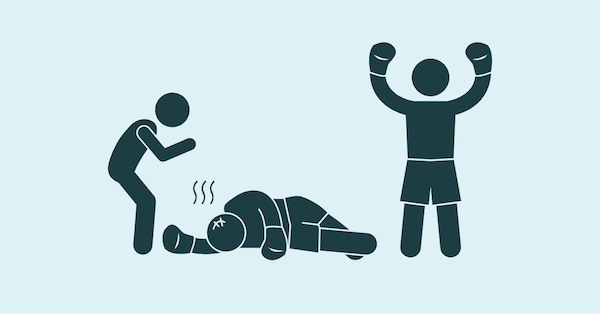
While teaching and consulting, I’ve had many existing Scrum Masters pull me aside looking tired, frustrated, and worn out. They seek me out looking for answers to difficult situations they are facing in the organizations where they work. They are running into walls trying to change archaic release processes, raising the urgency to management to empower product owners, getting management to be an ally not an enemy, or tackling any of the difficult organizational impediments that are often brought to light when using Scrum. That feeling of helplessness has led to them getting into a bit of a funk.
I liken this ‘Scrum Master Fatigue’ to the 1980’s NES game Mike Tyson’s Punch-Out. The main character is ‘little Mac’ and when he is down on the canvas, you as the gamer have to frantically smash on the buttons to get him to stand up. The more he’s knocked down the more frantically your button striking becomes often leading to a sore thumb. If he’s knocked down too many times he can’t stand back up no matter how hard you try. The result is a loss.
These Scrum Masters that seek me out often feel like they are frantically hitting buttons trying to get themselves to stand back up for the next battle. Some feel like they can’t stand back up at all. They feel like they’ve lost.
In order for organizations to benefit from the Scrum framework, they need Scrum Masters that are empowered to make organizational change and enthusiastic about doing it. Scrum Masters cannot give up! They need to pick themselves up off the canvas and push forward. If they don’t than Scrum may very well stall or even fail in an organization.
It can be difficult getting out of this funk but it is possible. What can you do if you are suffering from “Scrum Master Fatigue”? Here are four ideas:
- Incremental Change – As a Scrum Master, all too often I grew frustrated when I looked at how much change needed to take place and felt like I was getting nowhere. I was unintentionally building a waterfall plan to change an organization overnight. Something powerful that you can do is develop your owner personal 15% Solution to your problem – How do you get 15% closer to solving the problem. Check out the Liberating Structure 15% Solutions for more information. This exercise is excellent to do with other Scrum Masters. Round up some people and run through the structure as a group.
- Look Where You’ve Gone – You’ve undoubtedly made progress and worked hard to get where you are today. Grab a piece of paper or go to a whiteboard and draw a timeline from where you started until present day. Add activities and major events that have occurred since you’ve taken on the Scrum Master role. Think about the improvements that the Product Owner, Development Team, and Organization have made. Be proud of where you’ve been and figure out where you’re going next.
- Don’t Go It Alone – Do you frequently meet with other Scrum Masters in your organization to discuss Scrum? When is the last time you read a new book, blog, or attended an Agile user group? It’s important for Scrum Masters to learn from each other. It provides a fresh perspective and can give you new ideas. Sometimes I’ve even be given a reality check that things really aren’t as dire as they seem. Never settle where you are, always look for other people’s perspectives, and continuously explore new ideas.
- Create a Journal – A long time ago, I began journaling my experiences. I have pages upon pages of my successes and failures from almost every project I’ve been a part of. It’s been great reference material for me to know where I’ve come from and has helped me with where I am going. However, the greatest benefit of journaling is the therapeutic nature of it. It’s like breathing a sigh of relief typing out what is currently happening in the environment I’m in. It has also helped with #2 when creating a timeline.
Scrum Masters out there you might be tired, worn out, or have tapped out. Get up off the canvas because your organization, heck the world, needs you to push forward!
What is some advice you would give to a Scrum Master that is feeling fatigued?